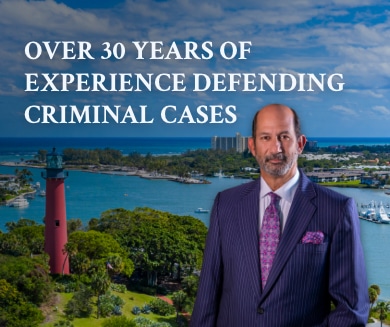Harboring of a Fugitive
 Under state and federal law, a person who knowingly hides a wanted criminal from law enforcement commits the offense of harboring a fugitive. Harboring a fugitive takes place when a person helps another who is suspected of or has been convicted of a crime attempt escape arrest or punishment. The law also applies to those who help escaped prisoners avoid captivity. Although the individual harboring the fugitive may not have any involvement in the crime itself, protecting those with arrest warrants against them can lead to serious penalties at the state or federal level.
Under state and federal law, a person who knowingly hides a wanted criminal from law enforcement commits the offense of harboring a fugitive. Harboring a fugitive takes place when a person helps another who is suspected of or has been convicted of a crime attempt escape arrest or punishment. The law also applies to those who help escaped prisoners avoid captivity. Although the individual harboring the fugitive may not have any involvement in the crime itself, protecting those with arrest warrants against them can lead to serious penalties at the state or federal level.
If you are arrested for harboring a fugitive in West Palm Beach, you need the prompt aid of an attorney who has substantial experience handling charges at the state and federal level. Brian Gabriel is the federal lawyer you seek. With over 30 years of experience defending those accused of state and federal crimes throughout Palm Beach County, he can help you construct a comprehensive defense strategy against federal charges for harboring a suspect or fugitive.
Federal Charges for Harboring a Fugitive from Justice
Persons who knowingly harbor suspects or wanted fugitives from justice can face one or more charges listed in Title 18 U.S.Code Chapter 49.
Concealing Person From Arrest
A person may face federal charges if he harbors a suspect or wanted fugitive targeted by federal authorities with the intent to help the fugitive avoid arrest. A person who attempts to protect such a fugitive faces federal charges as defined by Title 18 U.S.C. §1071.
Federal authorities must prove four elements in order for the person accused of protecting the fugitive to himself face federal charges.
- The prosecution must be able to prove that the concealed individual had a federal arrest warrant against him.
- The prosecution must show that the defendant knew about the concealed fugitive’s arrest warrant.
- The federal prosecutor must show that the defendant actually concealed the fugitive.
- The prosecution must prove that the defendant intended to help the fugitive hide from law enforcement.
Penalties for concealing a person from arrest may include a steep fine, a penalty of imprisonment of not more than one year, or both. Penalties can worsen if the fugitive’s arrest warrant had been issued for a felony charge or if the fugitive had already received a conviction of any offense and then fled law enforcement. If either of these scenarios took place, the defendant may be fined and/or imprisoned for up to five years.
Concealing An Escaped Prisoner
Federal and state laws recognize the crime of helping escaped prisoners avoid detection by law enforcement. Title 18 U.S.C. §1072 states that “whoever willfully harbors or conceals any prisoner after his escape from the custody of the Attorney General or from a Federal penal or correctional institution, shall be imprisoned not more than three years.”
Likewise, Florida State Statute §944.46 makes harboring, concealing, or aiding escaped prisoners a third-degree felony offense, punishable by a $5,000 fine and/or 5 years in a state prison.
Exceptions for Family Members in Florida
Florida is one of fourteen states that allows an exception for family members. This means that family members of fugitives cannot be prosecuted for protecting them against law enforcement. The exemption does not apply if the primary offender allegedly committed child abuse or murdered a minor. A “family member” is defined as a spouse, parent, grandparent, child, or grandchild. No such exemption exists for federal charges.









